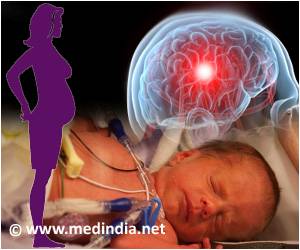A new study has warned that babies who are born preterm are at an increased risk for neuro-cognitive deficits.

"Cognitive performance deficits of children dramatically increase as cognitive workload of tasks increases and pregnancy duration decreases," says Dr Julia Jakel from the Ruhr-Universitat.
The research team tested 1326 children, born between weeks 23 and 41 of pregnancy, at an age of eight years. Data were collected as part of the prospective Bavarian Longitudinal Study.
The children took part in a range of cognitive tests with varying workload. High workload tasks require the simultaneous integration of different sources of information, thereby placing high demands on the so-called working memory.
The results: The higher the workload and the shorter the pregnancy duration, the larger were the cognitive performance deficits.
Deficits were disproportionally higher for children born before the 34th week of pregnancy compared with children born after week 33. Being born preterm specifically affected the ability to solve high workload tasks, whereas lower workload tasks were largely unaffected.
The study has been published in the journal Plos One.
 MEDINDIA
MEDINDIA




 Email
Email




